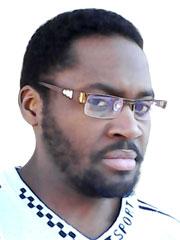During a small food festival by foreign students at the Communication University of China, a Congolese student had just finished introducing herself when she suddenly shot back to her feet; “one more thing, if you ever want to get really rich, come to my country, we have everything.”


During a small food festival by foreign students at the Communication University of China, a Congolese student had just finished introducing herself when she suddenly shot back to her feet; "one more thing, if you ever want to get really rich, come to my country, we have everything.”
The statement seemed to interest the European and South American students but not those from Kenya or Uganda who looked on with hidden amusement. The reality in Democratic Republic of Congo (DRC) is far from the image of paradise that this patriotic lady attempted to paint. True the Congo’s mineral wealth is undisputed but its people are some of the poorest in the world.
A fortnight ago, at an international fellowship centre in Beijing Dr. Miroslav Atanasov, a Bulgarian Priest broke down in a mass of tears. He had just finished researching on the horrific and sad atrocities committed by Belgium’s King Leopold II in the Congo Free State. Between 1885 and 1908 Congo was King Leopold’s private property legalized through the Berlin assembly that partitioned Africa, it’s from there that he harvested all the mineral wealth that built Europe’s beautiful capital Brussels. King Leopold’s ruthlessness is said to have claimed over ten million Congolese lives through torture and hard forced labour.
Bulgaria never colonized anyone but Dr. Miroslav’s guilt was so overwhelming that on May 25, he knelt down in a church before a hundred Africans and washed the feet of a Congolese priest, Bishop Mulumba. He also authored a petition which he handed to the Belgium embassy calling for an official apology to the Congolese.
Countries have sad histories but it’s an onus of present leaders to steer their people towards a better future yet Congo’s present seems to be firmly stuck in the jaws of same external forces that have bled the country to near collapse for decades.
The DRC continues to be a stubborn neigbour and the weak link to regional peace initiatives. Its vast jungles harbor a multitude of armed militia who are a danger to both itself and neigbouring countries such as Uganda and Rwanda. Kinshasa prefers to snub closer ties with its immediate neigbours for distant powers whose economic interests in the Congo are more important than the Congolese.
On the afternoon of August 18, 1960 during a meeting by USA’s National Security Council, President Dwight D. Eisenhower ordered Allen Dulles the Director of Central Intelligence Agency (CIA) to eliminate the man that was seen as the Castro of Africa-Patrice Lumumba, then Prime Minister of the Congo (Legacy of Ashes: History of CIA page 187). Lumumba was in the class of Ghana’s Kwame Nkrumah and Tanzania’s Julius Nyerere and after being freely elected, held the post-independence aspirations of the Congolese.
President Eisenhower’s order to eliminate Lumumba who was perceived as a communist agent in Africa would be accomplished in January 1961 when he was assassinated by a Belgian soldier two nights before John F Kennedy took office. The CIA had already identified Joseph Mobutu as Congo’s next president who would go on to rule and loot Congo for three decades with the firm support of CIA.
It’s a sad irony today, more than 50 years after the assassination of Congo’s first freely elected President, to hear voices from inside DRC accusing Rwanda of being the force behind that country’s political problems while placing blind trust in the same powers that could have killed Congo’s democracy and stability at infancy.
Early this week, Congolese forces provoked Rwandan forces at the border into combat that reportedly left several Congolese soldiers dead. Who will tame DRC into a better neigbour?
If the Congolese leaders studied their political history carefully, they would know that their destiny lays in a stronger relationship with neigbours not distant patrons.
Now there’s an ongoing misunderstanding between Kinshasa and its patrons over a conditional handout of $30 million. The patron has warned current President Joseph Kabila that extending his stay beyond 2016 would be unconstitutional; the same patron who never allowed a freely elected president to serve his term in 1961 is now seen as the defender Congolese democracy and constitutionalism.
With its vast natural wealth Congo shouldn’t be having the lowest GDP per capita in Sub-Saharan Africa of $422 at the end of 2013 and with 70% of its 77 million people living below the poverty line, according to London based Moody’s Investors Service.
Given the geographical proximity, Congolese instability will always be Rwanda’s insecurity. Rwanda just unveiled an ambitious expenditure plan but defense didn’t get a penny, half the budget went to economic development and job creation.
The message is loud; Kigali has no time for wars with neigbours, only business.
The writer is a post-graduate student at the Communication University of China


